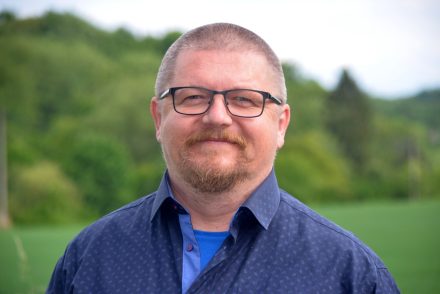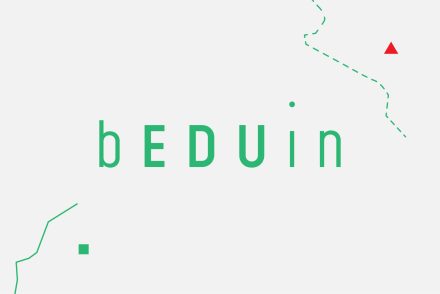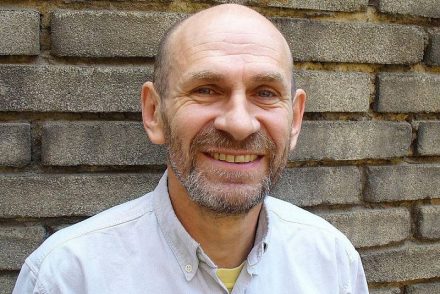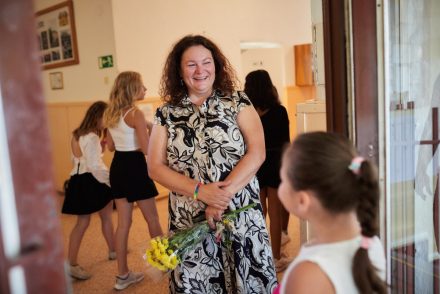Lack of diversity leads to absence of humanity
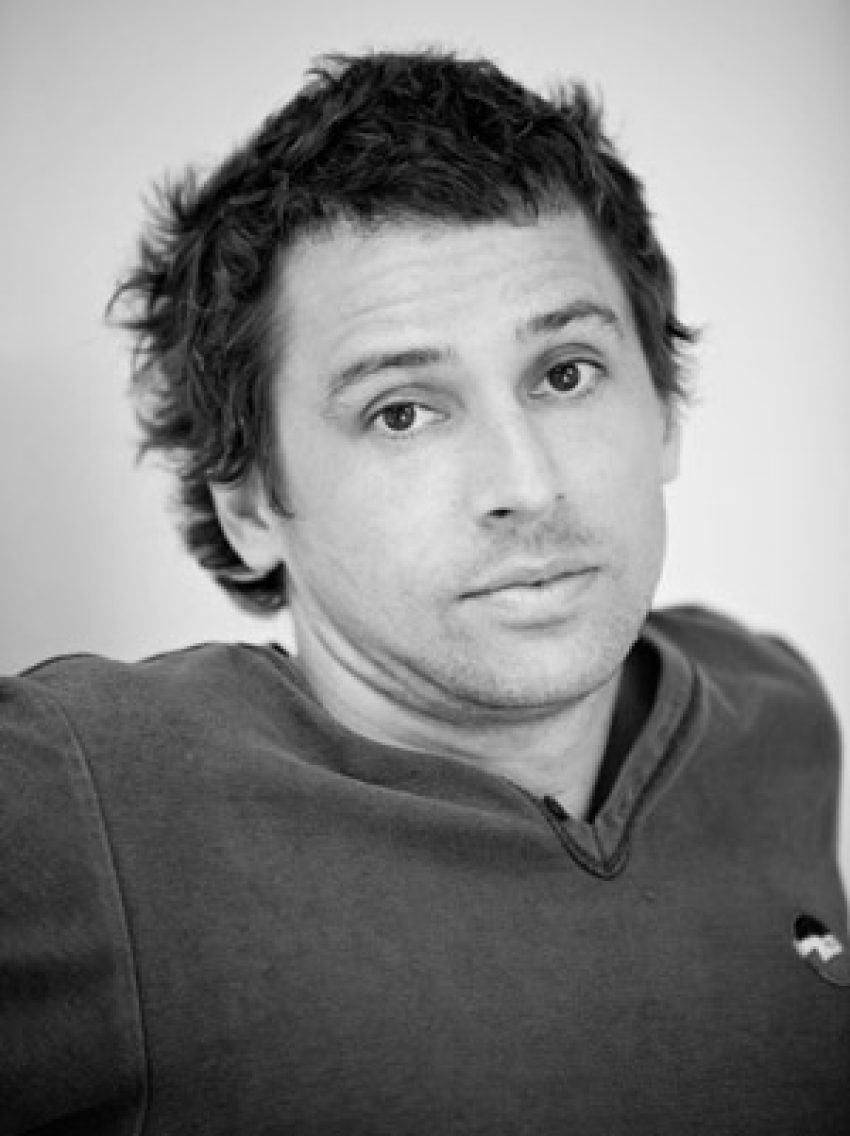
Text uvodního slova na konferenci Use Diversity to Enhance Learning in the 21st century (21. – 23. 9. v Praze). Více o projektu www.udel21.eu.
Ladies and gentlemen, I have been honoured to share some ideas and thoughts at your conference. It is pretty special moment in my life. Honestly, although I am quite experienced speaker, this is my first key note speech in my life. Maybe that’s the reason why I have started think about all the milestones in my life when Milan Kotík asked me if I can write and deliver key note speech in front of audience consisted from educational professionals.
You know, when people think about milestones in their lives, probably most often memory goes to the moment of celebrations after high school or university final exams. Don’t worry, I am not going to bother you with some details from student parties or enumerate successes of my life. It would be flat and one of the shortest key note speeches ever. Nevertheless, I would like to take you back in the time via fragments of my life story. I hope you will followingly understand why.
I was born in 1977 in former Czechoslovakia. For our foreigner guests and especially for those who came from western world, Czechoslovakia was one of the satellites in the gravity space of Soviet Union. At this time it was totalitarian state where constitution ensured power to one, privileged group of people united in Communist party and managed from abroad. It was system where people were persuaded that it is quite all right when power is distributed among limited group of people only. That it is quite normal when people are not allowed to decide on their own and – particularly – when we pretend that all of us are of the same. Forced egalitarianism was one of the key principle of communist ideology and people were supposed to deny their natural differences, their different opinions, different characters. Although communist egalitarianism supposed there is no difference among people, even openly spoke for antiracism, in fact it effectively flatted diversity. It was apparent in social life, in culture, in economy. Those who didn’t accept conditions and rules, regime tried to silence or expel. To uphold sway of regime where diversity is banned was important to get rid of people who deviate from this scheme.
For me as a school boy in late eighties it was pretty weird. I have grown up in environment where everything was managed to the idea that “everybody should has the same” but somewhere inside the system people could see huge signs of inequality. But inequality wasn’t transparent , inequality was hidden beyond the ideological, egalitarian arrangement. In small bribes to doctors who were paid less then miners, in small thefts by those who had opportunity to do it on the account of “public property”, in approach to the jobs where people often tried to avoid anything but their own benefits. In late eighties, almost nobody effectively believed to the ideology but people pretend it, they have learned mimics helping them to proceed according to the rule. Pretended equality and denial of diversity, social, cultural, political, was something what covered this country as a heavy water soaked blanket.
Of course, this milieu has spilled over across all the institutions, educational system included. Educational system tried to replicate ideological doctrine at all its stages. It was weak in the late eighties as the tight grip of totality was gradually releasing. But still it was kind of brain washing which told us we all deserve the same because in communist ideology there is no difference. No diversity. Yeah, there in the school was absolutely apparent that not all of us are of the same dough, somebody was better in math, somebody in sports, but there were only few those exceptions which communist regime considered as acceptable. Most of diversity was prohibited or labelled as “irrelevant”.
And then, when I was twelve years old came November 1989. For the young boy it was like flash from the clear sky. Teachers started over night teach children that it is not right to call teachers “comrades” but mister or misses. Egalitarian age where all people were comrades definitely faded away. Many, many incredible changes has taken place there. For example teacher who taught us in October that we have just one step to go and will finally reach out to the communist paradise on the Earth changed view and in November stood in front of the class as convinced democrat. Thereoccurred problem with compulsory Russian language (and teachers who taught it) because suddenly Soviet Union doesn’t play the role of “biggest and eternal friend” anymore and we all started to openly look to the west. And first of all, overnight has been created democratic space to exchange diverse opinions, diverse approaches and diverse identities.
Indeed, first months and years of freedom were beautiful and amusing. Society was full of hopes toward the future, all thing seemed to be easy. Almost nobody was aware of fact that there is continuity between totalitarian society from before November 1989 and so called democratic, pluralistic and free society after. And those who pointed out to this fact, they were labelled as confused and unwilling grouches. But sort of social, cultural and economic problems has occurred very soon. I remember that first post-November president of Czechoslovakia, Václav Havel, visited in early nineties first official Roma festival. He did it as a sign of acceptance of ethnic diversity in country where ethnicity wasn’t important so far because all people were communists after all. He did it as step to acceptance of diversity which has being presented in this society for centuries but which was in the past treated as matter of superiority and inferiority or as a taboo. Václav Havel was so brave to encourage Roma people here in Czechoslovakia to raise their heads in the act of acknowledgement of their identity. In the act of acknowledgement of true diversity.
I am bitterly remembering the fierce backlash from side of mamy people including my father, besides that convinced democrat and man who has been hardly suffered by the totalitarian regime. Beloved Václav Havel disappointed him deeply. My father and millions of newly born democrats representing social majority were surprised that democracy is not only for those who are privileged but for all, no matter what ethnicity or identity they have. Newly born democrats were suddenly confronted with the fact that old patterns of thinking doesn’t fit with democratic approach to freedom.
Now, when I am going through my memories from early nineties, it is one of very important signs about latent dangerous which hasn’t been apparent in years of social euphoria supported with the possibility to leave poor, post-communist country and hang out in the affluent Austrian or German streets to admire level of development and consequently match the quality of “democracy” to the material equipment of households.
But then in those years I was not being aware of it. I was amused with new phenomenon which attract many young people, especially boys: I was amused with skinhead movement. I was not skinhead at all, I didn’t belong to some group affiliate to this ideology but I was amused with the skinhead music which adored white supremacism and aggressively attacked ethnic, cultural or sexual minorities. I didn’t took it as something wrong, I didn’t act aggressively to other people because of their diversity but I thought that this is something inherent to democracy when people say what they want to say and don’t care about others. At this time I was not thinking about consequences of this attitude, about the influence at the social discourse and about the values which are truly inherent to democratic society and which include acceptance of diversity too. And what is most crucial, nobody at home or at the school, at two places which literally set our minds, was so wise to show me that this seemingly harmless entertainment is in fact serious violence towards to the core democratic principles. I am not so dare to say that my parents or teachers failed. They were not aware of it as well as I wasn’t.
There is no reason to be surprised. People, even those who disagreed with totality and those who actively fought it, were exposed to the very toxic environment where not only kind of double thinking was conditio sine qua non but also poor and ideologically swayed agenda setting missed some of crucial issues which drive public discourse in developed democracies. These issues like ethnicity, gender, sexual identity, cultural identity, environment and many others were either supressed or totally eliminated from official public discussion because communist ideology claimed that in communist countries there are no problems like this. And, what is necessary to make clear, communist regime with its executive apparatus and propaganda tried pretty eagerly to hold society off this issues.
Education system – again – confidently followed ideological instructions. There were no discussions in schools about different ethnic identities although inside relatively homogenic Czech society were Roma people, there were people from Vietnam or Cuba they came to get experiences and know-how from Czechoslovakian industry as a part of “comrade” cooperation. There were no discussions about LGBT rights because right communist doesn’t put this questions himself or herself. These people were forced to live in secrecy as well as political dissidents. During eighties some voluntarily initiated organizations started to care about environment. But they were supposed to organize cleaning waste in forest but they were really not supposed to organize campaigns against heavy pollution which evidently poisoned air in communist Czechoslovakia. All these artist and there audience they tried to diverge somehow from what was considered as “socialist art” were constantly threatened to be imprisoned or at least fired form schools or jobs.
So our brand new democratic society has struggled from its very birth with the burden which is not so easy to throw away from the back. According to the German social philosopher Ralf Dahrendorf it takes few months to rebuild legislation, few years to rebuild economy but decades to change key values that society stands upon. According to this view is understandable that Czechs and Slovaks haven’t been prepared to new challenges and to the fact that some people whose rights was abused during communist era would like to require them. Honestly, Czechs and Slovaks were not ready to claim even for their own rights because nobody taught them more than that right is not natural subject of public discussion and democratic decision making process.
Let’s skip now in the time to current days and look at what leap Czech society has done during 27 years since demonstrations for democracy and freedom ripped out in November 1989. I can’t speak on behalf of all Czechs. But what is worse than it, as democrat acknowledging our constitution including Charter of fundamental rights and freedoms I am even not sure if I can speak for Czech majority. I don’t have some evidence based analyses of it but I have serious concerns that we stand on the verge. We, and it is not worthy in Czech republic only, but in the whole European civilization, have to reconsider again if we would like stick to core values of democracy, core values articulated among fundamental rights and freedoms or if we give them up because of rising – and hugely fuelled – feeling of insecurity. If we would like to keep and acknowledge social, human diversity in its natural shape or if we rather give advance to them who want to curb it to some retrotopic model. Outstanding sociologist Zigmunt Bauman, who unfortunately gone last year, told us in his latest papers and essays that relation between freedom and security is main determinant of future quality of democracy. Bauman’s term “retrotopia” followingly label those people who – under pressure of insecurity – require to curb some human rights and freedoms in favour of measures allegedly necessary to ensure order and security. We can see many signs of the tension between freedom and security across the Euro-American area, especially in post-totalitarian countries of Central Europe. In some cases, for example Hungary or Poland, we can see pretty strong and successful attempt to rebuild relationship to the terms of freedom or human rights based just upon the demand to increase security toward alleged threats.
I am not sure this is the right way. I am even convinced that there is not goal for populistic politicians who make doubts regarding to the human rights most aloud to increase security in their countries. What I can see is attempt to misuse hysteria propped with part of media and get to the power. Human rights, freedoms and diversity staying beyond should be scapegoats of this pursuit. Indeed, how differently understand to the fact that just central European countries where immigration is much less painful social problem stand at the top of those who don’t want to help those people fleeying their homes and countries because of war, terror or living conditions which are to most of Europeans hard to imagine? I am convinced that one of the most important reason lies in the fact that these societies, Czech one, Slovakian, Polish or Hungarian have had pretty short time to understand what constitute democracy means and how to reproduce it.
What we can see regarding to the education system, we have being long time failed. Reasons are simple: schools, after decades of being abused as a part of propaganda and serving as ideological training camps, has denied to be places where social, political system is reproduced. After the November 1989 teachers deliberately gave up their natural role of educators in uncertain social and political field and instead of it they limited their role to the subjects they have qualification for. Not all and not absolutely but generally schools and teachers hand over part – maybe the most important – of education to the parents. Parents who had only few opportunities to learn something about citizenship, democracy and all the related context.
And I am worry that we still don’t know how to bring democracy, human rights and freedoms back to the school. How to bring there sense of diversity not as something abnormal but as a state of things when it comes to definition of human being. In contrary, we can see in Czech republic increasing pressure from the side of political parties – and not only expressly populist ones – to criticize schools for so called manipulation regarding to some political or cultural phenomena. With the wake of immigration crisis we can see enormous push from these circles to deter schools from the attempts to teach about multicultural society as if it is something strange or even manipulative. Obvious fact that multicultural society is just reality of our everyday lives is suppressed for the sake of cheap political gain with no idea about consequences. And consequences are clear: many teachers fell uncertainty if open with their students issues related to this field because they are worry about reactions of parents. Thereby, current situation is in apparent conflict with curriculum where the issue of multiculturality is firmly anchored.
And consequences goes beyond. Last year in Czech republic new legislation supporting more inclusive approach has come in effect. It has been many years long process of political negotiations which led into the successful solution which has brought chance for many children to be educated in normal schools and – at the same time – something what has potential to increase level of diversity in schools and society. Of course, it is not easy. There are many obstructions starting with desperately low teachers income, lack of the experience and training or need to cooperate with assistants or another teacher. But for Czech society is it at first opportunity to intensify social cohesion via bringing more diversity into the schools, benefit we should sought for. Instead of it we are witnessing spectacular attempts to raise disbelief about inclusion and in political programs for upcoming general elections we can find sentences labelling inclusion as a “ideological project”.
But I don’t want to finish in sceptical manner. Despite all the denial from political opportunists, globalization is on its way ahead. We are witnessing changing geopolitical and economic map of Earth but instead of precedent generations we can follow this changes as a movie running in real time. Causality of this process would be hardly depicted or described, it has many sources and many consequences. But some generalizations are clear. Among them we can name out the fact of rising diversity. It means that we are not able to avoid it, we need to find solutions. So as we like it or not, we can see ethnical, cultural and particularly economic borders melting away under the pressure of digitally driven world where traditional patterns doesn’t work anymore and where we are perpetually forced to look for new solutions of newly restored reality. And we – individuals and societies – have pretty serious concerns about it. Because we have found ourselves somehow fragile in face of speeding, dynamic technological and social development. Fragile in terms of Nassim N. Taleb definition of disabled rigid systems react inappropriately to unpredictable “black swans”. Indeed, we are realizing that we have to change our individual and social models of behaviour, we have to invent new ways to resolve spectacular problems, we have to change our mindset and thinking about the vehicles we can use to travel into the future. And – at first – we are responsible to equip our successors, our children, with skills they will can use not only to survive or accommodate but redesign world and simply thrive. But cardinal question is: How to make it while the education system is mostly repeating the same patterns for decades and teaching our daughters and sons about past, not about challenges of future?
Answer is surprisingly simple: it is up to us. It is at first up to us as a parents, secondly up to us as a teachers. We have to redesign our thinking about education and we have to accept that primarily we need to constantly educate ourselves because there are no models, no patterns coming from the past we can take and use. I am convinced that when we as a society do acknowledge this fact we can quickly build solutions upon it. I believe that this is the reason you are here today and I wish you to find here more then you expect.
Thanks for your attention.

